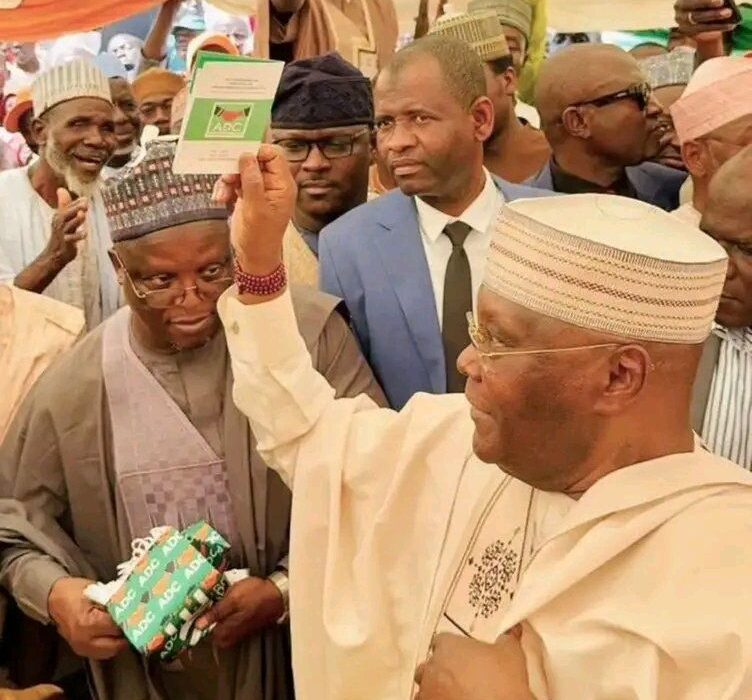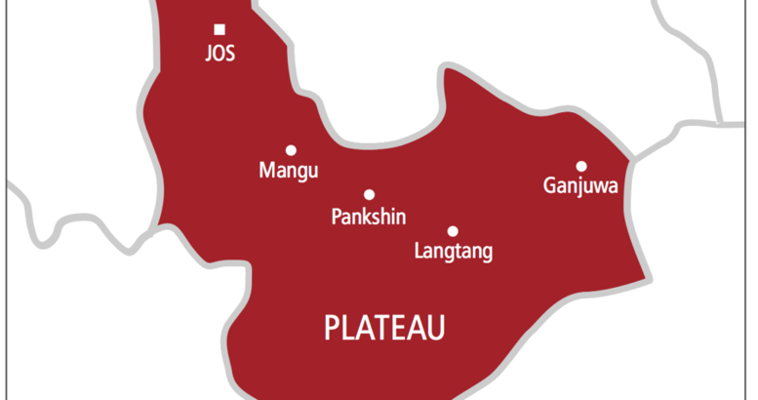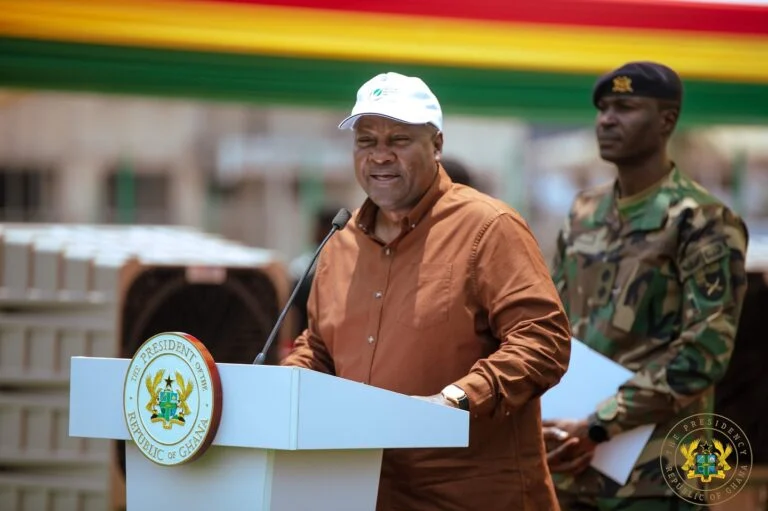Atiku Formally Pitches Political Tent with ADC in Adamawa

Former Vice-President Atiku Abubakar on Monday formally became a registered member of the African Democratic Congress (ADC) at his home ward in Jada, Adamawa State.
The registration attracted a large turnout of community members, local politicians and party faithful who gathered to witness what many described as a defining moment in the evolving political landscape ahead of 2027.
Atiku, who left the Peoples Democratic Party (PDP) earlier this year, has been the subject of intense speculation regarding his future political affiliation.
His decision to settle with the ADC has been interpreted by analysts as a strategic step aimed at reshaping Nigeria’s opposition structure and broadening the scope of political contestation outside the traditional two-party rivalry.
During the registration ceremony at Ward 1 in Jada, party officials presented Atiku with his ADC membership card, signalling a full transition into the party’s fold.
Local party representatives hailed the development, presenting it as proof of ADC’s growing national attraction and its readiness to welcome influential political actors into its structure.
The move has, however, generated contrasting reactions among political watchers. While supporters view Atiku’s entry into the ADC as a rejuvenating force that could energise the party’s outreach and mobilise undecided voters, critics caution that the significance of the gesture will depend on what follows particularly in terms of organisational structure, membership recruitment and cohesive strategy.
Within Adamawa, some challenges remain. The ADC’s local leadership in the state has experienced internal disagreements in recent months, including competing claims of authority by different factional leaders.
Observers argue that Atiku’s presence may either serve as a unifying catalyst or risk intensifying existing tensions if not carefully managed.
Outside the immediate environment of Adamawa, political players from other parties have been watching developments closely.
Some dismiss Atiku’s move as largely symbolic, while others quietly acknowledge that his influence, fundraising potential and longstanding political base could gradually shift calculations ahead of the 2027 elections.
For now, Atiku’s registration represents a clear statement that he intends to remain politically active. Whether the ADC can successfully harness his stature, consolidate its ranks and project itself as a nationwide contender remains to be seen. What is certain is that this development has injected fresh curiosity, speculation, and strategic repositioning within Nigeria’s shifting political terrain.









